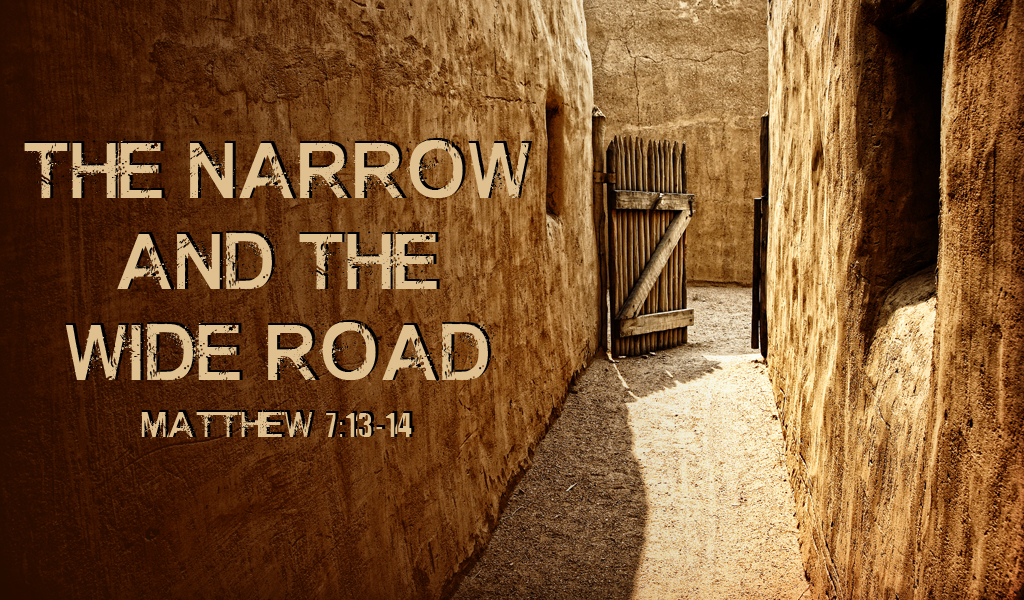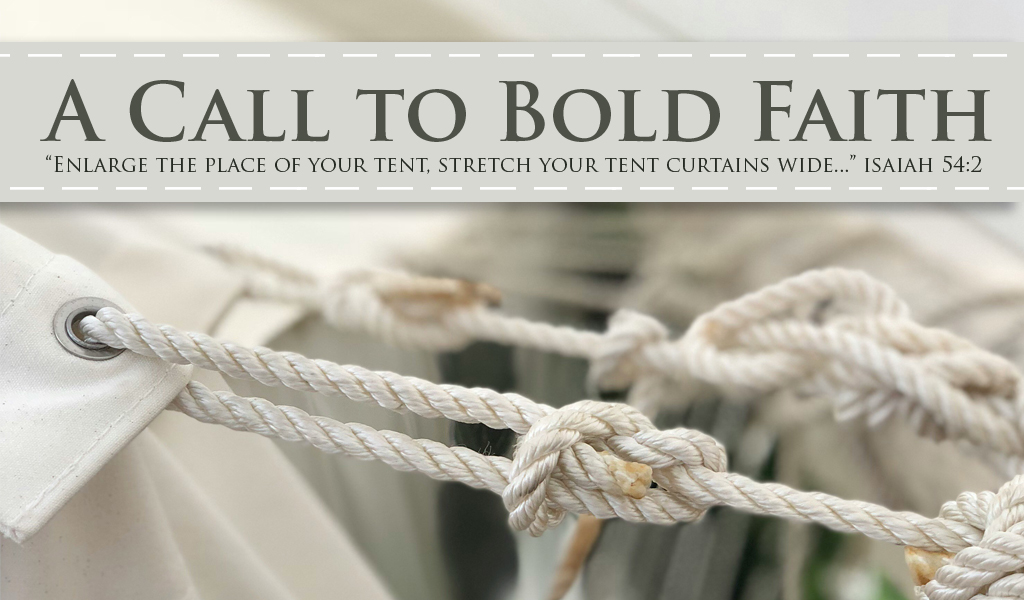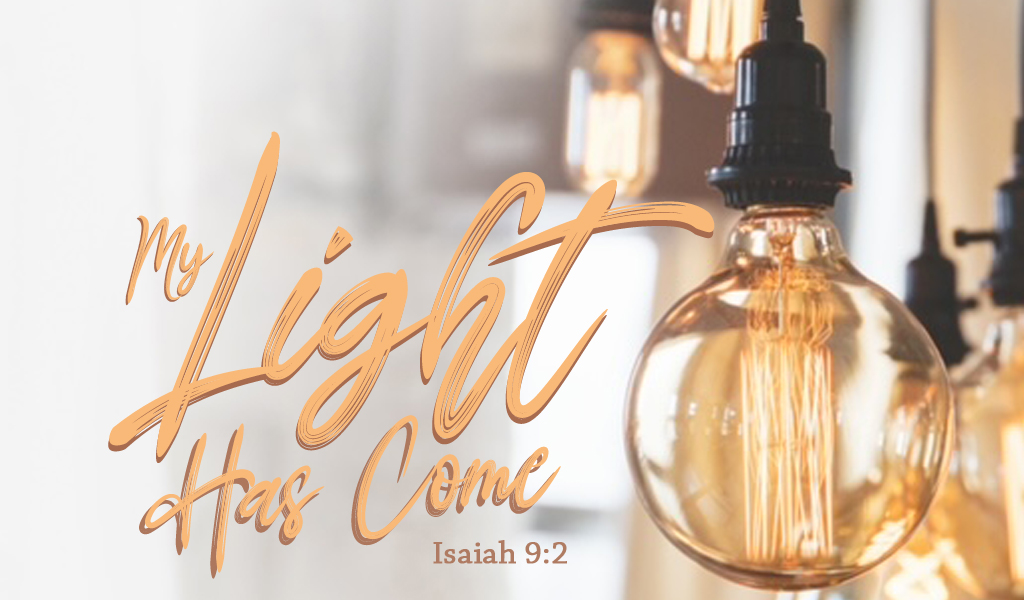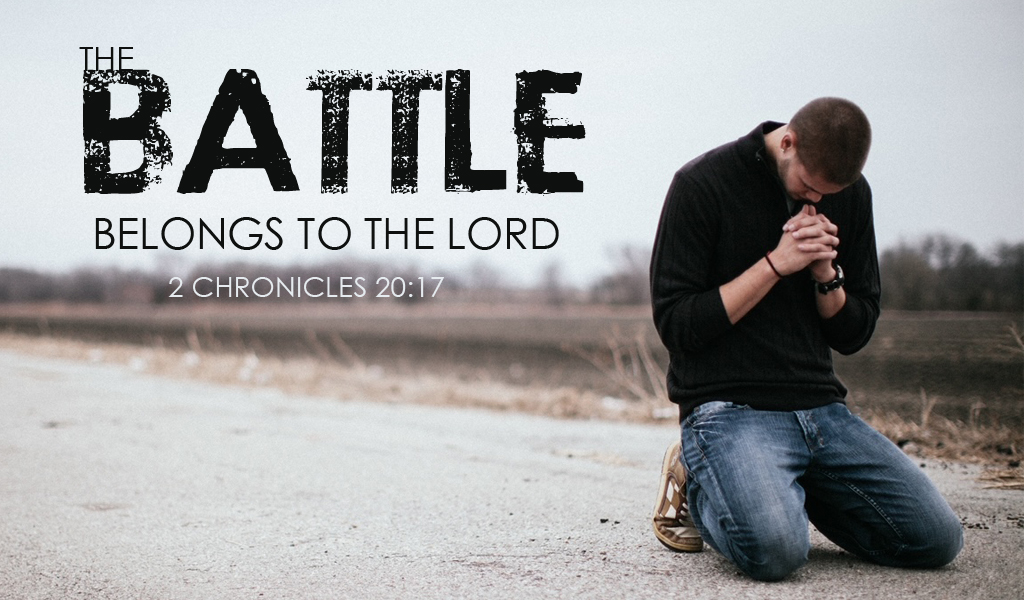Communion with Christ – Passover Sermon
Pastor Kris Burke
Copyright © 2020 United Faith Church | All rights reserved. No part of this publication may be reproduced, distributed, or transmitted in any form or by any means.
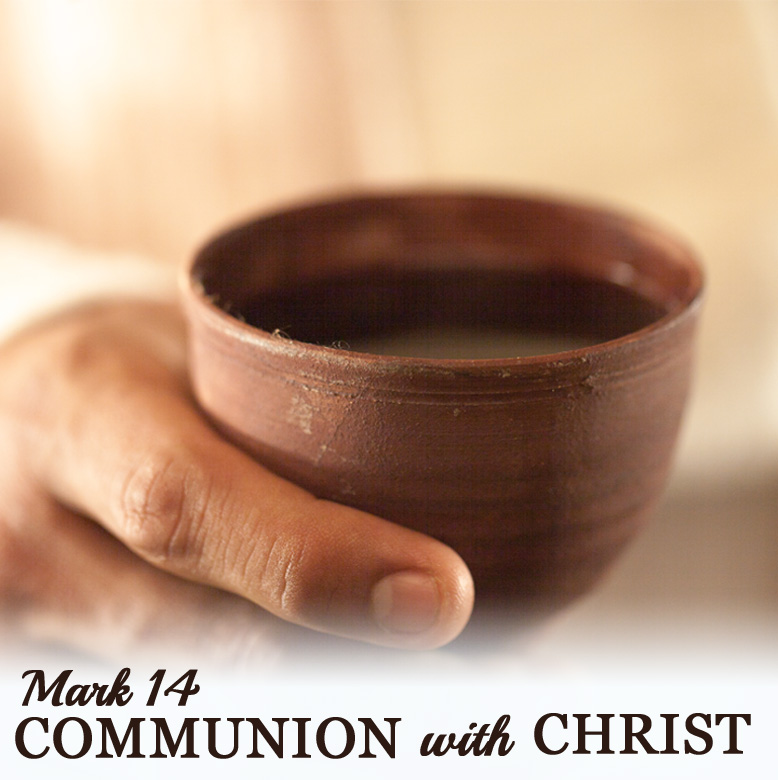
Mark 14 The Last Supper
12 On the first day of the Festival of Unleavened Bread, when it was customary to sacrifice the Passover lamb, Jesus’ disciples asked him, “Where do you want us to go and make preparations for you to eat the Passover?”
13 So he sent two of his disciples, telling them, “Go into the city,and a man carrying a jar of water will meet you. Follow him.
14 Say to the owner of the house he enters, ‘The Teacher asks: Where is my guest room, where I may eat the Passover with my disciples?’ 15 He will show you a large room upstairs, furnished and ready. Make preparations for us there.”
16 The disciples left, went into the city and found things just as Jesus had told them. So they prepared the Passover.
17 When evening came, Jesus arrived with the Twelve. 18 While they were reclining at the table eating, he said, “Truly I tell you, one of you will betray me—one who is eating with me.”
19 They were saddened, and one by one they said to him, “Surely you don’t mean me?”
20 “It is one of the Twelve,” he replied, “one who dips bread into the bowl with me. 21 The Son of Man will go just as it is written about him. But woe to that man who betrays the Son of Man! It would be better for him if he had not been born.”
22 While they were eating, Jesus took bread, and when he had given thanks, he broke it and gave it to his disciples, saying, “Take it; this is my body.”
23 Then he took a cup, and when he had given thanks, he gave it to them, and they all drank from it.
24 “This is my blood of the[c] covenant, which is poured out for many,” he said to them. 25 “Truly I tell you, I will not drink again from the fruit of the vine until that day when I drink it new in the kingdom of God.”
26 When they had sung a hymn, they went out to the Mount of Olives.
Jesus Predicts Peter's Denial
27 “You will all fall away,” Jesus told them, “for it is written:
“‘I will strike the shepherd,
and the sheep will be scattered.’[d]
28 But after I have risen, I will go ahead of you into Galilee.”
29 Peter declared, “Even if all fall away, I will not.”
30 “Truly I tell you,” Jesus answered, “today—yes, tonight—before the rooster crows twice[e] you yourself will disown me three times.”
31 But Peter insisted emphatically, “Even if I have to die with you, I will never disown you.” And all the others said the same.
Sermon Text
Communion with Christ
Sermon preached by Pastor Kris Burke - United Faith Church, Barnegat, NJ
Hello, everyone. I just wanted to take some time and share the Word of the Lord with each one of you. I hope everyone is doing well. I hope everyone is getting through this coronavirus, and everybody is hunkered down and enjoying the time that you each have with your families. I pray that this is a time that you are growing closer and into more intimacy with God.
You know, there will never be another time— and I was praying about this the other day— there will never be another time with your family that you will be inside your houses, that there will be no other distractions, there will be no other appointments, there will be no other schedules to keep. But, this is a time that we are truly with our families inside of the house, and it is a time that we are called to really grow close to our families, to come close together, to join as one in unity not only with each other, but with Christ. This should be a time that we are praying together and loving one another and enjoying the time that we get to spend with one another. What a special time that we are in! Never again will we get the opportunity to be so impactful with our children, with our families, with each other, and with Christ.
Right now everything is taken away; everything is stripped away. There's no soccer practice to make. There's no dance recital to get to. There's no play to go see. Your kids aren’t running out going to play with their friends. There's no event that they need to be at, no football game that they’ve got to rush to get dressed for. Right now is a time that we should be coming together as the family of Christ in a way that we never have before, into a true intimacy with one another and with God. I just pray that you guys are being as blessed by this time as we are, as blessed as a family as God has really intended this time to be.
You know, in America we don't stop; we never take time. Sunday morning is pretty much it, and it's hard to get people to even come and focus during that time. But right now, everything has been stripped away, and I just pray that you are utilizing this time to glorify God in your families and with one another, to truly come into a unity that you've never had before. So again, I just hope everyone is doing well. We are in Passover right now, and tonight's the night that we commemorate the Last Supper, and it was such a special time between Jesus and His disciples. I know recently I did a sermon on this, and I know Pastor Janeth has been speaking a lot about communion with Jesus Christ and what communion means; it's really so important in this time. You see, communion is meant to bring us into a close intimacy with Jesus Christ, and that's why this time is so important. When are we ever going to have the time, the block of time, that we have right now to really come into the intimacy that God has called us to?
Today, this message is going to be a little bit different than what I usually do, maybe a little bit more in-depth than I usually do, so I just ask if you guys maybe have a pen or a paper, that you guys would grab that because I just want to take some notes, and there are some things I’m going to want to write down because I really want to get into what communion means. Some of the things that are, maybe, “behind-the-scenes” are not as obvious when you read the Word, and I just want to make sure that we all get it today. So, let me pray as we get started.
God, I just pray for an anointing of your Spirit this day, Lord. Father, I pray right now that you would come and speak to our hearts about what you want to bring us into. God, you don't want to just have this be a time that the kids go play video games and the parents are watching TV and maybe cleaning the house, and everybody is separate. No, God, you are calling us to come together as one! Lord, I pray that this would be a time that we could come into an intimacy, into an intimate relationship. I pray today that this would be a time that we could come together as we never have before. I bless your holy name this day, God. And, Father, would you reveal yourself through your Word this day. In your name I pray. Amen.
Before we begin today, I want each one of you guys to stop for a minute, and I’m going to ask you to use your imaginations a little bit. This is kind of a unique platform that we have today, so just bear with me through each part of it, but I want you guys to just imagine that you’re at a baseball game with your families. Imagine that you're sitting in the stands, in the bleachers with your family and you’ve got your spouse and your kids there with you, or if you don't have a spouse and kids, then maybe your best friends or whoever it is that is the closest to you.
You're sitting there, and you have your food and you’ve got your hotdogs and your popcorn, and you’ve got your soda, and you’re all sitting there watching the game; and you're holding a nice, big fountain soda in your hand, drinking from a straw and your husband, or your wife, or whoever it is, looks at you and says “Hey, let me get a sip of that.”
”Sure, no problem.” Right? “Here, you have a sip.” And they take a sip, and then you begin drinking again. You're just drinking, watching the game, and then your kids say, “Oh, I’d like a sip, too! Can I get a sip of your soda?” And you say, “Sure, no problem,” and you give them a sip of your soda. Right? That's so normal. That’s such a normal thing that we would do.
But, what if the guy next to you... what if the big guy sitting next to you turns to you and says, “Hey, buddy. Can I get a sip, too?” That would be ridiculous, right? You would look at him like he was crazy. Why? Because the act of sharing a meal, and sharing drink, and sharing food is really a very, very intimate act. It’s not for someone on the outside. It's not for someone who’s sitting next to you. It's not for someone you’ve never met before. Even if it was your best friend, it would still be kind of weird for you guys to share a drink together, to share a water bottle, or to share a soda together. You’d say, “No, get your own. What are you, crazy? You’re not drinking out of my soda.” But, if it's your kids or your spouse, or someone that you’re very close to, then you don't even think about it. It truly is an intimate act to share these things together. It's a closeness that is really reserved for immediate family.
I remember that one time Jessica was sharing a drink with Joshua and I said, “Jessica, do you want me to get you your own drink, so you don’t have to share?” and she said, “No, why would I need to get my own drink? Joshua and I have shared everything including our germs up to this point, you know? We’re almost one person, so what's the point now?” I thought about that for a second and I thought that it made so much sense. I remember when he was an infant and he really struggled so much with his congestion, and Jessica came home with this contraption called a “Baby Frida,” which I'd never seen before, and honestly, when she told me about it I thought it was a joke, but it's literally something that goes in the nose of a baby and the mom just pretty much sucks the congestion right out through a tube. And I know that’s kind of funny, and I use “congestion” to use the best word for it, but that is something that's so crazy, right? You think about a mom going to their infant son and how close that is. So at that point, when you think about sharing a drink when they've shared so much, it's really no big deal when you get past that. If you've done that together, you pretty much will do anything together. I can’t imagine whoever invented that machine and put that to market and said, “Yeah, this is a great idea,” but parents buy them, and it really did help.
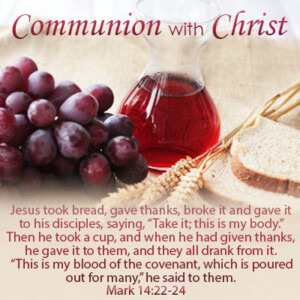 Today, I want us to remember the intimacy between Jesus and His disciples. I think about how intimate sharing a meal is, how everything that they'd been through up to that point... in that moment, sharing a meal was no big deal. I think of Joshua and Jessica, and how much they shared in everything, going from food, to drink, to even germs. Everything about them was one. In the same way, Jesus and His disciples were so close. They truly were like family. For them to share a meal together, it was not a stranger thing. It was not something that you would do with just anybody. You’d do that with family. They ate of the same bread; they passed around the same cup and drank from it. They truly were so close and so intimate in that time.
Today, I want us to remember the intimacy between Jesus and His disciples. I think about how intimate sharing a meal is, how everything that they'd been through up to that point... in that moment, sharing a meal was no big deal. I think of Joshua and Jessica, and how much they shared in everything, going from food, to drink, to even germs. Everything about them was one. In the same way, Jesus and His disciples were so close. They truly were like family. For them to share a meal together, it was not a stranger thing. It was not something that you would do with just anybody. You’d do that with family. They ate of the same bread; they passed around the same cup and drank from it. They truly were so close and so intimate in that time.
That last night that they spent together was so special and so intimate that it launched a ceremony that has been held by Christian churches for thousands of years. When you think about that type of intimacy, you can understand why God says that communion is really for the believer alone. It's not meant for just anybody. It's not meant just for anybody in the world, but it’s meant for the believer. Why? Because it's an act of intimacy between a man and his God. Just like you do not want to share your soda with a stranger, God only shares His blood, and His body, and that intimate time together with a man or woman who have submitted themselves and have come to God's throne asking, “Lord let me be one with you this day.”
So, we’re going to read about that, and the Gospel I’m going to be reading from is the Gospel of Mark chapter 14, and we’re going to be starting at verse 12. So, Mark 14:12 is where we’re starting, and this is listed in the different Gospels, but I picked this Gospel because I like how it read. So it said:
12 On the first day of the Festival of Unleavened Bread, when it was customary to sacrifice the Passover lamb, Jesus’ disciples asked Him, “Where do you want us to go and make preparations for you to eat the Passover?”
13 So He sent two of His disciples, telling them, “Go into the city, and a man carrying a jar of water will meet you. Follow him. 14 Say to the owner of the house he enters, ‘The Teacher asks: Where is my guest room, where I may eat the Passover with my disciples?’ 15 He will show you a large room upstairs, furnished and ready. Make preparations for us there.”
16 The disciples left, went into the city and found things just as Jesus had told them. So they prepared the Passover.
17 When evening came, Jesus arrived with the Twelve. 18 While they were reclining at the table eating, He said, “Truly I tell you, one of you will betray me—one who is eating with me.”
19 They were saddened, and one by one they said to Him, “Surely you don’t mean me?”
20 “It is one of the Twelve,” He replied, “one who dips bread into the bowl with me. 21 The Son of Man will go just as it is written about him. But woe to that man who betrays the Son of Man! It would be better for him if he had not been born.”
22 While they were eating, Jesus took bread, and when He had given thanks, He broke it and gave it to His disciples, saying, “Take it; this is my body.”
23 Then He took a cup, and when He had given thanks, He gave it to them, and they all drank from it.
24 “This is my blood of the[a] covenant, which is poured out for many,” He said to them. 25 “Truly I tell you, I will not drink again from the fruit of the vine until that day when I drink it new in the kingdom of God.”
26 When they had sung a hymn, they went out to the Mount of Olives.
The Passover Lamb, Jesus.I just want to set the scene of where we’re at right now. So, Jesus goes and tells His disciples to prepare a place for them to take this Passover meal, and that would usually be something that the women of the group would do, but again, I just want to speak to the intimacy of the group that they said, “No problem, Jesus.” And they go, and they begin to prepare this place for the family of God to eat together. And then He begins to predict that somebody’s going to betray Him. All 12 of them must have heard this and must have really been thinking, “What is He speaking about? What is He talking about?”
And then, He breaks the bread, which we are going to get into, and He takes the cup, which we will get into also. And then, if you continue on, in verse 27 it says Jesus continues— and remember, He just set the scene saying that someone was going to betray Him— and He says, “You will all fall away,” Jesus told them, “for it is written: “‘I will strike the shepherd, and the sheep will be scattered.’ But after I have risen, I will go ahead of you into Galilee.” Peter declared, “Even if all fall away, I will not.” “Truly I tell you,” Remember, he's saying this because Jesus had just predicted the betrayal. “Truly I tell you,” Jesus answered, “today—yes, tonight—before the rooster crows twice you yourself will disown me three times.” But Peter insisted emphatically, “Even if I have to die with you, I will never disown you.” And all the others said the same.”
You know, Peter must have been thinking at this point that Jesus was talking about him when He spoke about somebody betraying Him. So, Peter adamantly comes out and says, “No way, God! Not me! I won't do that! I won’t betray you. I won’t come against you, God!” And Jesus declares at that point, “No; you will deny me.” If you think about that, you think about the intimacy and the family. These guys were drinking from the same cup. They were eating from the same bread. They truly were a family in such an intimate environment. This isn't something that you would do with a stranger. This isn't something you even do with a close friend. This is reserved for family. And He comes and says, “you're going to deny me.”
And I think about Peter, after that third denial. Peter's heart must have been in such anguish because he realized in that moment he did exactly what Jesus said that he was going to do. Jesus said during the dinner, “Woe be to the one who betrays the son of God. He would be better off not being born.” In that moment, He wasn't talking about Peter, He was talking about Judas. But, from Peter's point of view, you have to look at that and say, “Oh God! What did I just do? Jesus said that somebody was going to betray Him. He said he would be better off not being born. He told me I was going to deny Him, and look! It came true.”
But, we need to really examine the difference between the betrayal of Peter denying Jesus—which, if you think about that family tie that they had, for him to deny Jesus and to not even only say that he wasn't a follower, that he wasn't a student of Jesus, but he even went further and said, “I don’t even know the guy.” That would be like me saying, “I don’t even know Jessica. I don't even know Joshua.” Right? That's the level of what that was at. But there is a difference between Peter and Judas, and it starts in the heart. Peter was so close with Jesus; he walked with Him, and he cared for Jesus. Pastor Janeth and Jessica have always said something: “You never get close to somebody unless you truly care for them in their time of need.” Whether it be when they're sick, or they're going through financial trouble, or they're going through a time of crisis, when you truly care for someone, that is when you truly come into an intimacy with them.
Peter had that with Jesus! Not only that, Jesus had just got done washing all of their feet! Yet, here he is, Peter, denying Jesus Christ and saying, “I don't even know the guy. Forget about being a student of Christ and the path; I don't even know Him.” But the difference really started in the heart, because Peter wanted to be in intimacy with God. You see, Peter, in that moment, looked and said, “God, what have I done?” There was such a repentance inside of his heart saying, “God, I don't want to be separate from you. I don’t want to be far from you. I don’t want to be cast from your presence, God. Lord, I'm so sorry for what I have done.”
Judas was unrepentant. His sin was done in malice. Judas... at no point after he received his payment did he ever turn and repent for what he had done. And I want you to write this down: Judas was paid in 30 pieces of silver. 30 pieces of silver, in that day, was the exact price of a slave. 30 pieces of silver would buy you a slave. You see, Judas thought he was betraying Jesus. In fact, he sold himself out. He sold himself out, right back into slavery, and he received the payment for it.
Yet, that wasn’t Peter's heart. Peter's heart was repentant. His heart never left God. As much as he did wrong, as much as he sinned, when Jesus rose and spoke to Peter, Peter's heart was anguished for what he had done. Because of that, you can imagine Peter at that moment being like, “Oh, Jesus resurrected, here He comes. He's going to rebuke me, and He's going to cast me from His presence, and He’s going to say that I have to go back to what I was doing before and— ‘just go back, you no longer have a part of me.’” And He goes and he begins to speak to Peter, and He says, “Peter, do you love me?”
”Yes God. You know that I do.”
“Then feed my sheep.”
Peter, in that moment, was not cast from God's presence, but in fact Jesus commissioned him to go and care for His sheep, the thing that was most precious to Him. And He said to him, “Peter, on you my church will be built.” I think about that. Did Judas betray Jesus? Yes. Did Peter betray Jesus, even? Yes, he did, but when you look at the heart of each of them, Judas was unrepentant. Judas didn't want to be close to God. Judas didn't want to be in intimacy with God. Peter wanted to be near God. He wanted to know Jesus. He wanted to live with Jesus. He didn't want to turn away from Jesus. In fact, his heart said, “God, forgive me for what I have done that all of my days I might know you.” And because of that, because of his repentant heart, because of his heart that wanted to be in intimacy with God, Jesus revealed Himself to him in such a deep way. We often look at John as the one that Jesus loved, and they had such a close relationship; yet, He turned to Peter and said, “Peter feed my sheep and on you will my church will be built.” Wow. That's amazing! That's amazing, but it was truly in the repentance of the heart and a desire to be in the intimacy with God.
Today, many people sin. In fact, many people have betrayed God by their actions, their speech, and their motives. That is just the nature of the world that we live in, but God is looking for a heart that wants to be in communion with Him, that wants to be forgiven for everything that they have done, for all those times that they've turned their back on God and Jesus. They want to be forgiven for these moments, they want to be freed from them and they want to come into intimacy with God. He wants a heart that wants to be in communion with Him, that is repentant and wants to be in His courts. That's why the Word says don't go to the table with a dirty heart. Don’t go to the table with unrepentance in your heart. Don't go to the table of intimacy with unrepentant sin in your heart like Judas did; you are heaping judgment upon yourself, just like Judas. But have a heart like Peter that wants to be near God, be in intimacy with God, and rid yourself of all inequity, for God can build His church upon such a heart.
I just think that’s so amazing, and as I was reading about Passover and the Passover meal, and what it means, you find that everything within the Torah and within the Jewish heritage and customs is deeply, deeply symbolic. I've never been one, myself, for symbolism. I have a hard time looking past what the words are really saying and looking for something more, but as I’ve come in to Christ I’ve realized more and more that God is all about symbolism, and remembering the past, and giving us signs to help us remember. And the Jews really understand this deep symbolism and the meaning that everything has. I’ve come to find that if you take a moment to look, you will find that most passages in the Bible speak deeper truths than at first glance.
And that's why you can read the Bible 1,000 times and 1,000 times come with something new, because God is always speaking something new. He’s speaking something deep, and He’s speaking something to the heart of the believer. For example, the Passover meal was not just the time that the Jews would come together as a family and just talk about what had happened. No, every piece of the meal was dedicated to a different aspect of that time. In fact, if you go on your computers or your phone and if you Google the “Seder plate,” you'll see that this was a plate that was on the table of every Jewish family during their Passover meal. It was a plate with six cups or holders in it, and it would have six different types of food inside of the plate, and each piece of this food had a special meaning.
One of them was the roasted lamb. It was a piece of roasted lamb that was in one of the holders, and that symbolized the lamb that was sacrificed and the blood was smeared on the Israelites’ doorpost to turn away that angel of death. Then, there was the unleavened bread—and I want you guys to write this part down, because this is important. The unleavened bread symbolized the Israelites departing from slavery. If you read in Exodus, as Pastor Janeth had us read last night, you'll see that they couldn't even let the the yeast rise inside of the bread because they had to be so ready to leave and to flee slavery that there was no time to even allow that yeast inside of the bread to rise. Then, there was a vegetable, which is typically celery, and it's dipped in salt water, and that was to symbolize the tears of slavery. There was a bitter herb, like horseradish, that symbolized the bitterness of slavery. They would take a bunch of different fruits, I don't know the exact fruits, but they would have a bunch of them, and they would grind them all together, and it would make a paste; that symbolized the mortar that the Israelite slaves had to use to make bricks. And, the final one was an egg. The egg is a symbol of mourning and it's commonly eaten at Jewish funerals, you’ll see that a lot.
So you can see that each one of these foods that are inside have deep meaning to the history of Passover and of the Israelites. Along with the food being on the table, which was there during Jesus' time during that last meal—all six of those foods were on the table—there were four glasses of red wine on the table. Only four: never more, never less. Four glasses that the people at the table would all drink from, and each one of these glasses symbolized the four-part promise of redemption found in Exodus 6, verses 6 to 7.
So, there’s a four-part promise there. The first glass represented where God said, “I will bring you out.” Write this down because this is very important: the first glass says, “I will bring you out.” Glass two was “I will rid you of your bondage.” Glass three was “I will redeem you,” and the fourth glass says, “I will take you for my people and I will be your God.” So, this was the promise that God had spoken over His people, and there are four parts to that promise, and each glass of red wine on that table represented one of the promises or one of the aspects of that promise. This is something that is widely known among Jews. Every member of that table, when you look at the Last Supper and Jesus being there, knew exactly what each piece of food and every glass of wine on that table represented.
So, Jesus and His disciples are in communion together; they’re in the Last Supper, they’re in closeness, they’re reclining on one another, there’s such an intimacy in that place, they’re eating and sharing drink. And this is important: they go through the first two glasses of wine, and then Jesus stops them. Remember, wine back then was not like it is today, it was very, very, very low in alcohol; it was just to keep them healthy, and it really was deeply meaningful and had a lot of symbolism to it. So, they go and they drink of the same two cups, and they finish the first two cups. They go to the third, and then Jesus stops them, and He gets everyone's attention. He takes the bread and He breaks the bread. Notice, he doesn't cut the bread— he breaks the bread. Remember, what does this bread symbolize? This was the unleavened bread that sumbolized their departure from slavery. So, this bread: He takes it, He breaks it—the bread that symbolizes their departure from slavery—and He says to them, “This is my body given for you, do this in remembrance of me.”
Wait a second. “We've been doing this... we’ve been doing the Passover meal year after year for a really long time. I know what the law of Moses said. The law of Moses says that this bread represents our departure from slavery, we’re supposed to remember that when we break and eat this bread.” But Jesus turns to them and says, “This is my body given for you, do this in remembrance of me.”
So, Jesus, in that moment, is almost saying, “Stop doing it in remembrance of your physical slavery and do it in remembrance of me, your true freedom. Stop looking to the past when your arms were in shackles in a physical manner, and look to the present where your souls are in shackles because they are shackled to the weight of sin. But in this moment, I am going to be the bread of life and I'm going to break my body, and it's gonna be for you. In that moment back then, yes, God came and He used Moses, and He freed you from the physical slavery; but look in front of you today because I have come, and I have come to grant freedom to your souls. I have come to grant freedom from sin and I am ready to break my body to give it to you, to pay the price for you.” You were slaves of Egypt set free, but you are still slaves to sin. But take heart! For Jesus Christ was ready to give up his life to bring them into true freedom.
He has that bread, and they share it among one another and He says, “Do this in remembrance of me.” And remember, they had already finished the first two glasses of wine, and they go to the third, and He stops. They come to the third glass, and what does that third glass represent? Which part of the promise? The third part that says what? “I will redeem you.” He takes that glass and He passes it around. Remember: everybody at this table knew what each one of the glasses represented, and He takes the glass of redemption. He takes the glass that says “I will redeem you,” and they share it among one another as close, intimate family, and He says what? “This is my blood given for you, do this in remembrance of me.” It couldn't have been much clearer than the message that He was sending at that point to the people at that table. The wine here is not only a symbol of Christ's blood which was shed to redeem us from sin, but it represented a new covenant, a new thing, a new promise of intimacy and family with God the Father.
I just want to stop there and think about what this truly means. He set a new covenant at that moment to say, “Look, my body is going to be broken for you. My blood is gonna be spilled for you. Stop looking to the past, and do this in remembrance of me. I know what you've done for the last however many years. I know you do year after year when you meet together, but in this moment look to me. Do this in remembrance of me.”
"Forgiveness is intimacy with God."We, today, need to remember what Jesus Christ did for us. We need to remember that we were slaves. The Jews looked year, after year, after year to a past where their people were in slavery. I pray today that every time that you take of that cup or you move tonight you would remember a time where your soul was in slavery to sin, where you had no choice, where you had to follow the ways of sin— where maybe your marriages were falling apart, or your kids were leaving, or you didn’t know which way you were going to go, or you might have ended up dead or in jail or something worse— but yet, God intervened in your life and He broke the power of slavery. But, that power comes with a covenant! That forgiveness comes with a covenant. It comes to say, “God, I am with you, you have redeemed me. I’m coming into intimacy with you.” The table is a place of intimacy. Forgiveness is a place of intimacy. It's not meant to be thrown around and just given to whoever wants to take it, like seed scattered in a field. No, it's meant to be someone who wants to come into intimacy with Christ and say, “God, let your Word become deep inside of me. May it go deep in, Lord God. May it go to the root of who I am.” And I know Pastor Janeth had mentioned, “May that blood go deep, Lord, deep, all the way until it reveals every wayward way inside of me, until it reveals all the inequity. And God, may it cover it and burn it away.” This is what it means to be in the forgiveness of God. This is what it means to be in the intimacy with God.
Forgiveness is not a ticket to sin. It's not something to be thrown around. It's not something just to say, “Well, you can just ask forgiveness and everything will be fine, and you can continue to live your life however you want.” No; forgiveness is intimacy with God. It's a new covenant and it was paid for by His blood and by His body.
So, those first two glasses were taken because those had already been done. And He takes the third, He takes that glass of redemption, and He says, “This is my blood which is being poured out for you.” You'll notice that the fourth cup of wine is still untouched at this point. Jesus looks at the fourth cup, representing what? “And I will take you as my people and I will be your God.” He leaves it untouched, and what does He say to His disciples? “I will not drink again from the fruit of the vine.” Meaning, “I will not take of that cup until I drink it anew with you in the kingdom of God.” You see, He was predicting something else. He wasn't just predicting His death and Him going to the cross and their sins being forgiven and paid for. No; He was even, at that moment, predicting a time where He would return for His people, where He would come back, and He would bring them to be with Him in heaven. And for all of their days He would bring them into the house of God. That fourth cup was left untouched, and He said,
“Don't you worry, I'm coming back for you. I'm going to get you. For all my people, for my church, for the ones who love me and honor me and want to be in intimacy with me and have sought me out and have been forgiven of their sins, and who have accepted my sacrifice—for those, I'm coming to get them, and I will bring them to my Father's house. And there will be the wedding feast of the Lamb where we will go to my Father's house and we will all dine together at His table. And in that moment I will be their God and they will be my people forever and ever, for all of eternity.”
You see, that fourth cup is a promise of what is to come. It’s the wedding feast of the Lamb where they will share the last cup of wine together for eternity with God. Today God is looking for a people to come into intimacy with Him. He wants to come into communion with each one of us, not just you as individuals, but you as a family. Men of God, I’m praying that we would stand up and really bring our families into unity. That we would bring our families into unity to come before Christ as a unit, not only with our family, but even with God, as one, to come into communion, to come into intimacy.
Pastor Janeth’s been speaking about taking communion with your family wherever you can. Why? Because if you would truly look at what that bread meant. If you would truly look at what that wine meant. If you would look at it and know what it means, then you would remember the price that was paid for you to bring you and your family into intimacy with God and that every act, every time we come into communion— yes I understand it's an outward thing, we’re just taking a little bread, taking a little juice, but— it's meant to symbolize something deeper, that the act of communion would bring you into deep intimacy with God.
You know, if you look at Da Vinci's painting you'll notice that everyone is reclining at the table with Jesus. And the Word, as I mentioned before, makes special mention of the fact that they were reclining at the table. Do you know why? Jews never reclined while eating. They never recline. They never slouch. They never lay back, or lean back while they're eating. It’s considered disrespectful. The one time that they will recline and kind of lean back at the table is once a year during the Passover meal. And again, it was symbolic of their freedom. It was symbolic of their freedom with God.
I pray today that you would come into that intimacy with Christ; that you would come in, that you’d be able to lean back against Christ and think about that intimacy, that freedom that you have, that your heart would be the ones looking to be in the courts of God where Christ is, that you would find Him and recline against Him like John and find freedom under His wings, that your communion would be an act of exposing the deepest parts of your heart with Christ as only family would truly do, and that you would move in this world as aliens— for you are not part of this world, they are not your family— but you would move as one who has been set apart as one who is of the family of Christ, as a follower and believer of the Lord Jesus Christ.
Guys, I bless you on this day. I bless you in this time that we are coming into intimacy with God. I pray that you would really dwell on what the Passover meal, what the communion, really means and that your heart would be to be in communion with God; that you would seek to bring your family into communion, that you would seek to bring yourself into communion, and that God would just be doing something new in your midst.
So I bless you guys on this special day. I pray that God will keep you all safe and that God would just be doing a new thing in your midst. I bless you guys and pray that God would be with you. Amen. Love you guys. Bless you.
Copyright © 2020 United Faith Church | All rights reserved. No part of this publication may be reproduced, distributed, or transmitted in any form or by any means.



